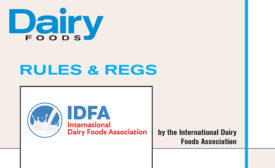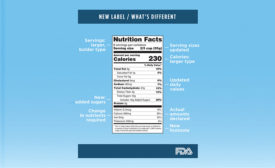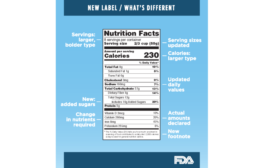Articles by Cary Frye
Outdated regulations put the U.S. cheese industry at a competitive disadvantage
Read More
Dairy products fit into a healthy diet
IDFA is urging the Dietary Guidelines Advisory Committee to include key dairy-related priorities in its final report
December 12, 2019
FDA strategy promises progress on standards and labeling
With the right approach and focus, the agency’s comprehensive initiative will provide the updates companies need to innovate and meet the tastes of today’s consumers.
December 6, 2018
Let’s give consumers the products — and information — they want
Consumers want to make informed choices about what to feed their families
August 7, 2018
How dairy is winning in Washington
With new players came a new playing field this year — and an opportunity for a new approach.
December 5, 2017
Just the facts
What dairy processors must know about FDA's new Nutrition Facts label
Dairies and other food makers must comply with the new FDA Nutrition Facts label rules by July 26, 2018. Get started now.
July 19, 2016
Stay ahead of the curve. Unlock a dose of cutting-edge insights.
Receive our premium content directly to your inbox.
SIGN-UP TODAYCopyright ©2025. All Rights Reserved BNP Media.
Design, CMS, Hosting & Web Development :: ePublishing






